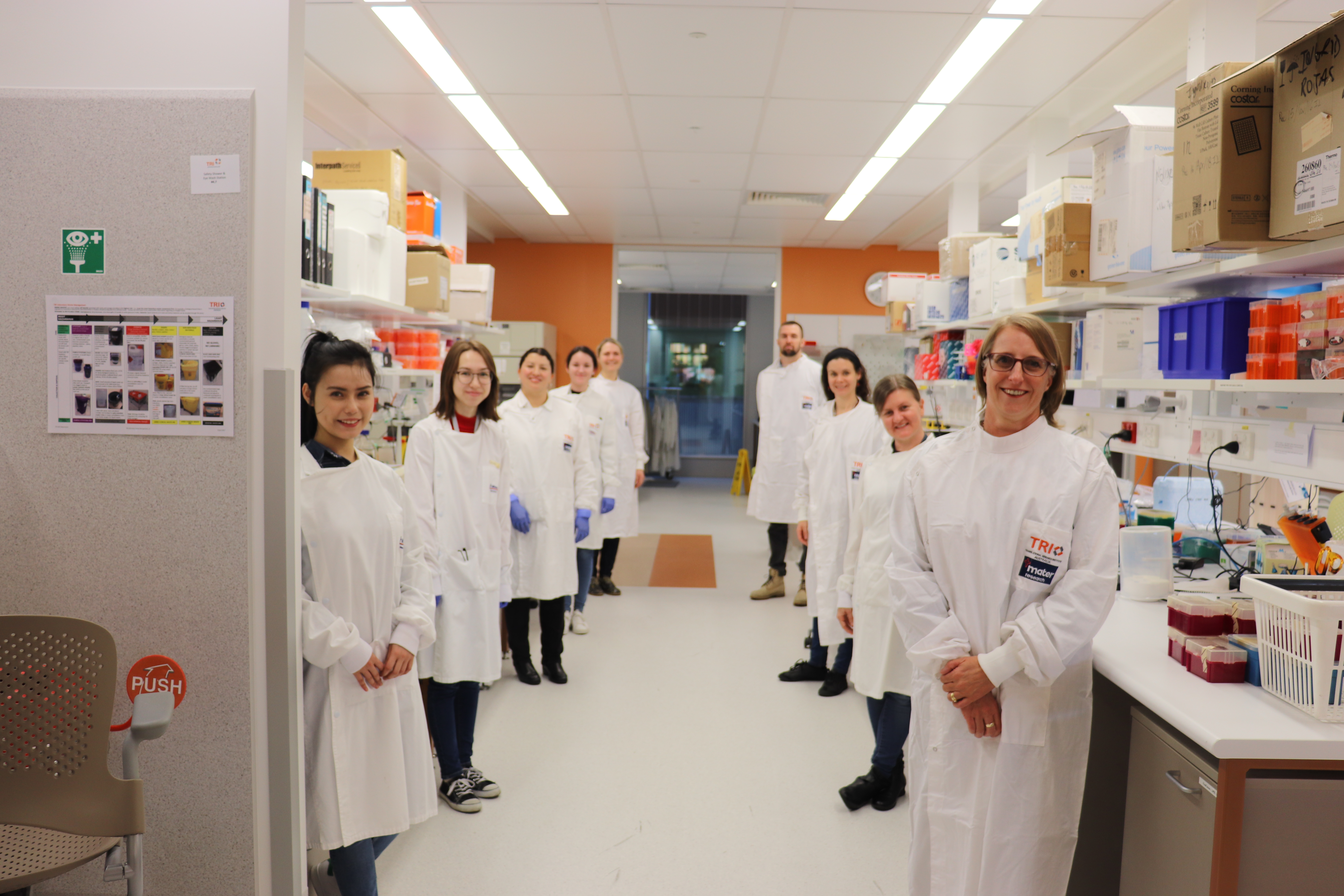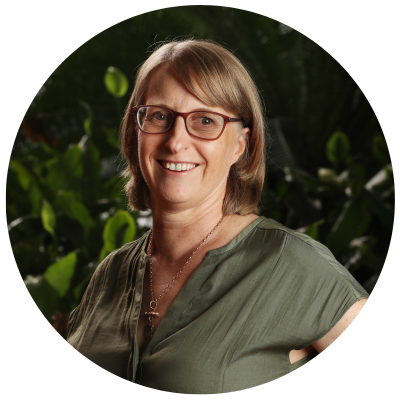YOUR IMPACT
Cancer Research
Learn about the latest research efforts and discoveries happening at Mater.
Community support behind Queensland research team’s cancer vaccine target
Mater Foundation supporters are helping spearhead the development of a ground-breaking vaccine to treat ovarian cancer.
An incredible $600,000 funding commitment will further underpin a four-year program of work being led by internationally renowned researcher, Prof Kristen Radford.
Professor Radford leads the Cancer Immunotherapies Group at Mater Research and University of Queensland in the Translational Research Institute in Brisbane.
This latest funding provided by Mater Foundation supporters will help power a Phase 1 clinical trial which aims to make cancer a manageable disease.
Expanding Prof Radford's research program in dendritic cells, it seeks to understand how dendritic cells can trigger an immune response in a range of tumours.
This program of work will also leverage Prof Radford's recent grant of an additional $670,000 from the Ovanian Cancer Research Foundation, applying this research to a wider range of tumours.
Ovarian cancer claims the lives of around 1,000 Australian women each year and is the deadliest gynaecological cancer, with a five-year survival rate of 49%.

Professor Radford said the vaccine her team hoped to develop would be used to treat active cases of ovarian cancer and not as a preventative tool.
The vaccine will target ‘dendritic’ cells, which play a key role in the body’s immune system.
“Ovarian cancer is very challenging to treat because it comprises over 30 distinct disease types, many of which don’t respond to conventional chemotherapy and standard care protocols,” Prof Radford said.
“Some of the current treatments that are available for women with ovarian cancer have not fundamentally changed in decades.
“We are targeting a certain subtype of immune cells called ‘dendritic cells’, which are the primary cells which trigger immune response.

“In ovarian cancer patients the dendritic cells are somewhat dysfunctional, which might help explain why, to date, ovarian cancer hasn’t responded to immunotherapy as well as other cancers.”
Funds allocated to this world-class cancer research work will enable Professor Radford’s team to investigate which molecules on dendritic cells can be targeted to train the immune system to more effectively fight ovarian cancer.
Prof Radford’s previous research has already demonstrated the effectiveness of a dendritic cell-based vaccine for treating prostate cancer.
Mater is the leading treatment and research centre for ovarian cancer in Queensland, treating approximately 130 of the 285 women each year who are diagnosed with the disease statewide.
There is no available screening test for ovarian cancer, which means most cases are advanced when they are detected.
The vaccine being developed also has the potential to prevent secondary cancers.
“The immune system is always looking for and killing off all sorts of invaders in the system including cancer cells, while leaving healthy tissue alone,” Prof Radford said.
“But cancer cells change their disguise over and over again. This means that many are simply not well-recognised by the immune system, so they can proliferate before the immune system realises the body is under attack,” she said.
Thanks to the incredible support of events like Brisbane to Gold Coast Cycle for Cancer, Mater Foundation can continue to offer assurances of ongoing funding to Prof Radford and her team to carry on this exciting research focus.
“Decades of research and previous trials by some of the greatest scientists in this field have enabled us to get to this point. What we’ve learned along the way is invaluable,” Professor Radford said.
The vaccine leverages a world-first discovery of an extremely rare and evasive subtype of cell in the immune system called cDC1, which is directly involved in fighting invading cancer cells.
“By using cDC1, we have found a way to train the immune system to then be able to do its job better.
If successful, the vaccine would be an off-the-shelf alternative that could treat a range of cancers including ovarian, breast, prostate, head and neck, bladder, blood and metastatic melanoma.
“You never stop dreaming and imagining that we’ll find the cure, but this vaccine is a huge step on the journey to making cancer a manageable disease,” Professor Radford said.
“Research is painstakingly slow, but this vaccine is the collective result of decades of work by so many pioneers in this field—very little of which would have been possible without the generosity of the community.
“We are standing on the shoulders of giants, and this field has now become my life’s work as well, but it’s only through your support that we have been able to keep going.
“Cancer is the world’s biggest killer, and we are right on the edge of changing the way we treat and manage this disease forever.”









